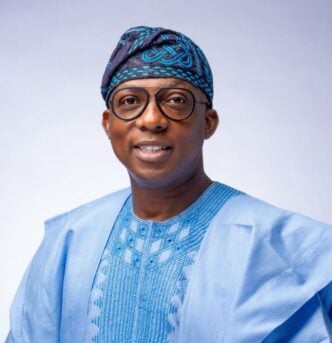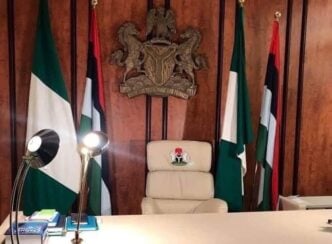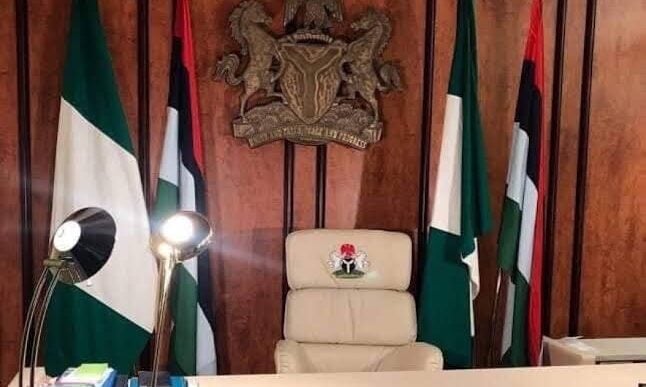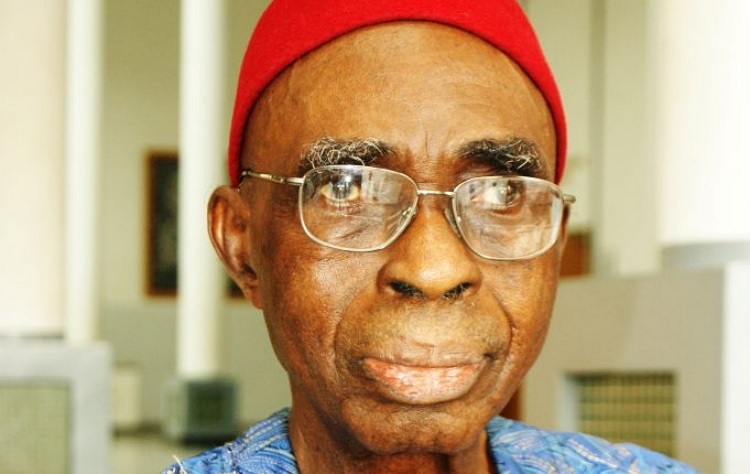BY FEMI OLUFI
Barely a year into Dr. Dayo Mobereola’s tenure as Director General of the Nigerian Maritime Administration and Safety Agency (NIMASA), the nation’s maritime sector is undergoing a bold and unarguably overdue transformation.
Appointed in March 2024 by President Bola Ahmed Tinubu, Mobereola brought with him a reputation for disciplined leadership and digital reform, shaped by over a decade of exemplary service at the Lagos Metropolitan Area Transport Authority (LAMATA), where he oversaw the launch of Nigeria’s first BRT system and the Lagos Rail Mass Transit (LRMT) Blue and Red lines.
Now, that legacy of change is being brought to bear on Nigerian waters. While recent weeks have seen some internal pushback against one of his flagship initiatives, the Maritime Enhanced Monitoring System (MEMS), the broader picture reveals a DG focused on modernization, transparency, and indigenous maritime development.
Advertisement
Sweeping Achievements
Since assuming office, Mobereola has spearheaded reforms that address long-standing inefficiencies and systemic bottlenecks within NIMASA.
Chief among these is the eradication of piracy within Nigerian waters, a feat that had eluded previous administrations despite extensive investment.
Advertisement
Under his leadership, the agency has significantly enhanced Nigeria’s maritime security profile, particularly through the full activation of the Deep Blue Project—a high-tech security initiative combining air, land, and sea assets to monitor and protect Nigeria’s maritime domain.
This effort has not gone unnoticed.
The United States Coast Guard (USCG) recently commended Nigeria for its high compliance with the International Ship and Port Facility Security (ISPS) Code, ranking it among the top-performing maritime nations globally.
For a country long stigmatized by piracy and port insecurity, this is a reputational win with strategic implications.
Advertisement
Mobereola’s reform agenda also includes improvements in staff welfare. Promotions previously stalled under a top-heavy structure have been addressed through a merit-based system that recognizes performance and simplifies the agency’s hierarchy. Employees now report clearer lines of accountability, more equitable advancement opportunities, and a rejuvenated organizational culture.
Strategic Disbursement
One of the most significant milestones under his leadership is the near-completion of the long-awaited Cabotage Vessel Financing Fund (CVFF) disbursement process.
Valued at $700 million, the fund is a vital step toward empowering indigenous ship owners in a sector historically dominated by foreign firms.
Advertisement
12 Primary Lending Institutions (PLIs) have been selected to oversee the disbursement, and the application process has already been finalized. During a recent stakeholders’ forum in Lagos, Mobereola reiterated the strategic importance of the CVFF, stating: “This is not merely vessel financing, it is an investment in national capacity. With this fund, we aim to reshape the participation of Nigerians in our coastal and offshore operations, generating jobs, preserving foreign exchange, and strengthening our GDP.”
The CVFF, once disbursed, will serve as a long-term enabler of local content in the maritime industry, aligning with broader government objectives around economic diversification and self-reliance.
Advertisement
Push for Transparency
Another early reform by Mobereola was the automation of key NIMASA systems, aimed at enhancing transparency and reducing opportunities for corruption or administrative bottlenecks.
Advertisement
This reform has digitized licensing, registration, and inspection processes, significantly cutting wait times and making compliance more accessible for stakeholders.
Through these early wins, NIMASA has begun to reassert its relevance in the global maritime community.
Stakeholders across government and industry now speak of a more proactive, responsive, and tech-savvy regulator. But like all structural overhauls, this transformation has not come without resistance.
Advertisement
Reform Meets Resistance
The most heated point of contention so far in Mobereola’s tenure is the Maritime Enhanced Monitoring System (MEMS), an ambitious, integrated digital platform designed to consolidate NIMASA’s data, automate enforcement, streamline billing, and provide real-time vessel monitoring.
Developed through a proposed public-private partnership with Royal Diadem Consults Ltd, the MEMS is set to cost N7.54 billion, with 75% financed through debt and 25% equity.
In exchange, Royal Diadem is expected to receive 13.5% of NIMASA’s revenue over a 15-year period, pending Federal Executive Council (FEC) approval.
This revenue-sharing model has triggered internal concerns, with some staff calling it excessive for what they describe as “a glorified ERP system.”
Critics have questioned the project’s cost-benefit balance, citing NIMASA’s annual revenues, estimated at N497 billion in recent years, and projecting that Royal Diadem could earn several times its initial investment within a few years.
Others lament what they perceive as a lack of transparency in the proposal’s review process, stating that there was no cross-departmental vetting before the agreement was submitted to FEC.
Setting Record Straight
In response, NIMASA issued a detailed statement defending the MEMS initiative and debunking the claims of secrecy or financial impropriety.
“The MEMS platform introduces digital traceability at the core of our maritime operations,” the agency said.
“With real-time visibility into vessel movements, smart invoicing, incident management, and environmental compliance, the system will not only eliminate leakages but enhance revenue capture across the board.”
NIMASA further emphasized that each waste offload, compliance violation, or inspection log would now be traceable and billable, converting what was previously lost revenue into consistent income for the government.
Additionally, MEMS is projected to boost revenue by 30% within three years; increase regulatory compliance to 95%; reduce maritime pollution by 20%; and create up to 1,000 jobs.
While some staff members remain skeptical, independent analysts argue that such outcomes justify a performance-based partnership.
Unlike fixed contracts where vendors are paid regardless of outcomes, this model ties Royal Diadem’s earnings directly to NIMASA’s success.
A Global Trend
Globally, maritime agencies are racing to implement digital systems.
From Singapore’s Smart Port initiative to the EU’s Port Community System, the fourth industrial revolution is reshaping maritime logistics and governance. Nigeria, as Africa’s largest economy and a key regional shipping hub, cannot afford to fall behind.
By investing in MEMS, NIMASA is positioning itself for long-term relevance in global maritime trade.
Critics focused on short-term revenue-sharing figures may be missing the forest for the trees.
In a world moving toward digitization, manual systems are not only outdated, they are dangerous to national competitiveness.
Reform-Driven
If there is one consistent theme throughout Mobereola’s public service career, it is courageous, technocratic leadership in the face of institutional inertia.
At LAMATA, skeptics once questioned the viability of the BRT and rail systems. Today, those systems are part of Lagos’ DNA.
At NIMASA, he is pursuing a similar trajectory, laying down a foundation of efficiency and accountability.
Notably, Mobereola has not engaged in personal attacks or media battles. Instead, he has stayed focused on facts, encouraged internal dialogue, and relied on empirical projections to defend his policies.
He has emphasized that reforms must be inclusive but also uncompromising in pursuit of national interest.
Future that Works
While the MEMS debate may continue for some time, it is clear that NIMASA under Mobereola is headed in a direction consistent with global best practices: data-driven decision-making, automation, and stakeholder accountability.
There is room for fine-tuning the MEMS proposal, and stakeholders, including agency staff, deserve a seat at the table.
But rejecting the initiative outright would risk derailing a much-needed transformation.
As Nigeria seeks to grow its blue economy, enhance trade logistics, and expand indigenous participation, a reformed NIMASA is not optional, it is essential.
And with Mobereola at the helm, that reform is well underway.
Olufi is a Lagos based public affairs analyst
Views expressed by contributors are strictly personal and not of TheCable.










